This is my homework:

I haven't tried to write the part of Natural Logarithm because I can't solve the part of Exponential.
This is the the approximations of Exponential in C using Taylor Series expansion I wrote.
However, it returns inf. What did I do wrong?
#include <stdio.h>
// Returns approximate value of e^x
// using sum of first n terms of Taylor Series
float exponential(int n, float x)
{
float sum = 1.0f; // initialize sum of series
for (int a = n; a >= 0; ++a ) {
while (x * sum / a < 0.00001) {
break;
}
sum = 1 + x * sum / a;
return sum;
}
}
int main()
{
int n = 0;
float x = 1.0f;
printf("e^x = %.5f", exponential(n, x));
return 0;
}